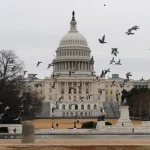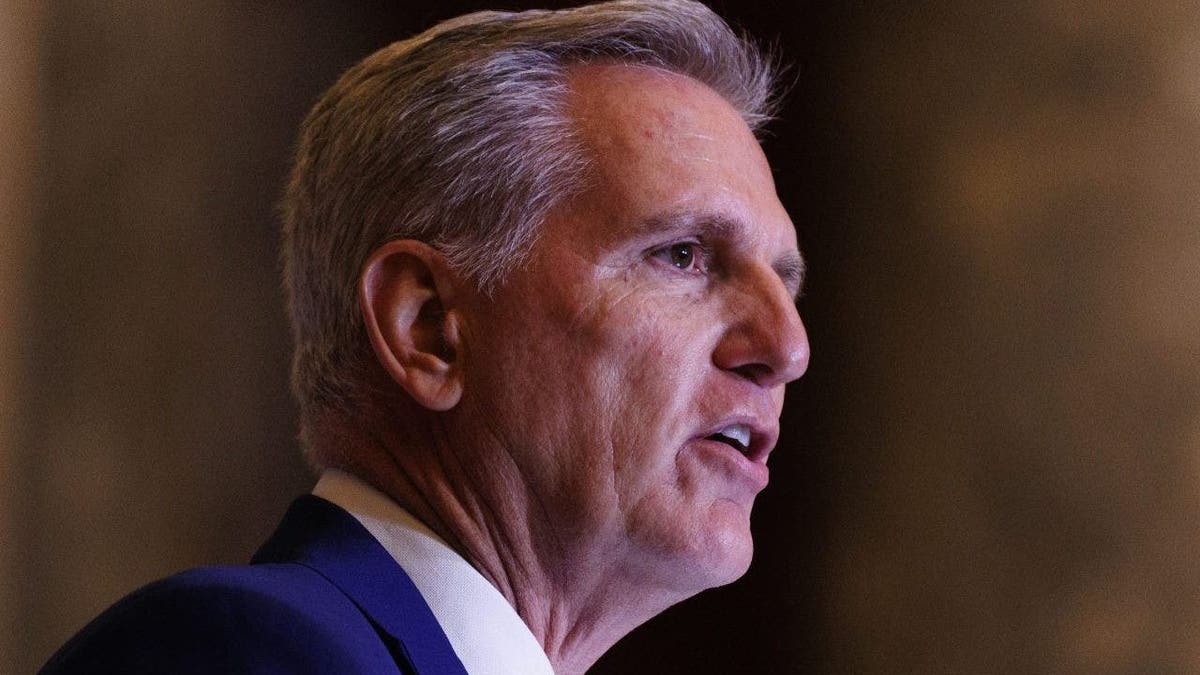
He has been out of Congress for nearly half a year, but the shadow of former House Speaker Kevin McCarthy, R-Calif., is still looming large over the House of Representatives as lawmakers get ready for another intense government funding fight.
Last year, McCarthy agreed to suspend the U.S. debt limit through January 2025 in exchange for federal spending caps for the next two fiscal years, a deal he struck with President Biden called the Fiscal Responsibility Act. Under its terms, discretionary government funding can only grow by 1% in fiscal year 2025.
House appropriators are now wrestling with how to navigate that cap without severely impacting Homeland Security and Defense spending. Fiscal conservatives want negotiators to stick to the statutory cap, which is roughly $1.606 trillion. Defense hawks, meanwhile, are concerned about the effects of a meager increase and worry it could amount to a spending cut on national security when accounting for inflation.
“That was a deal that McCarthy made, right? He’s not here anymore. But our hands might still, legally, be tied to it,” one GOP lawmaker told Fox News Digital.
WHY MEMBERS OF CONGRESS DECIDE THEY ‘GOTTA GET OUT OF THIS PLACE’
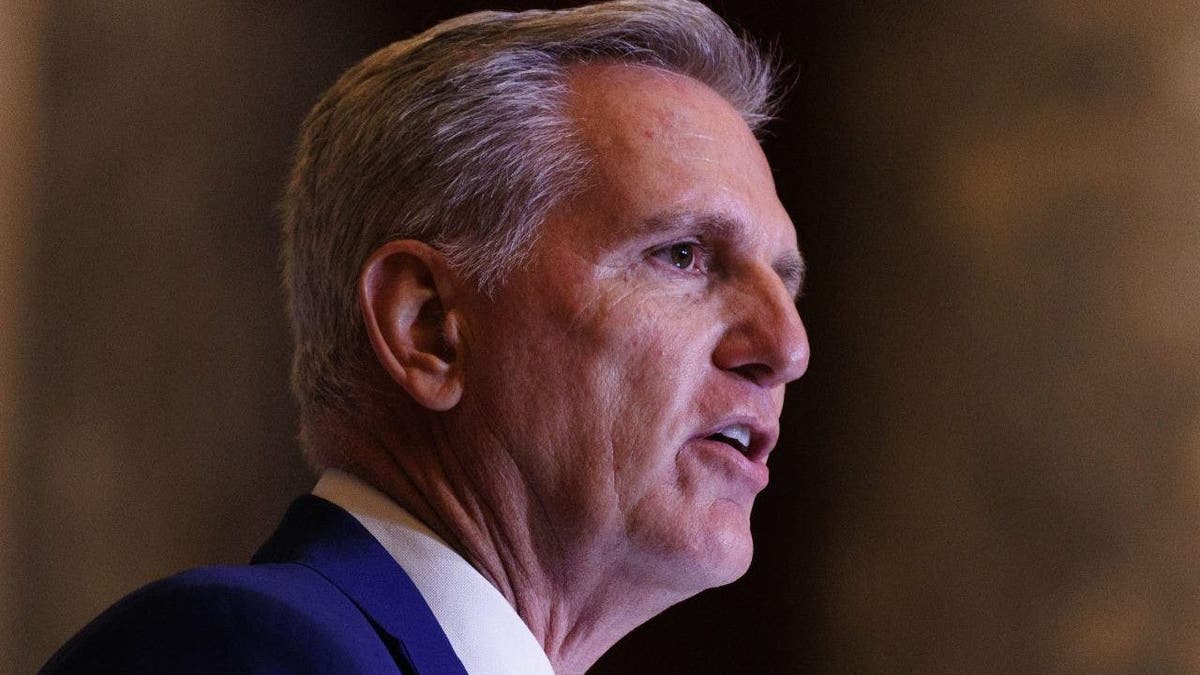
Former House Speaker Kevin McCarthy may have left Congress, but his deal with President Biden is still playing a decisive role in the latest government funding talks. (Photo by Aaron Schwartz/NurPhoto via Getty Images)
“I understand what the intent of the FRA was, but… the caps as written prevent us from effectively keeping pace with China. So, whatever is needed between leadership, the Senate and the president to allow us a little more maneuvering space in terms of the allocations between the federal agencies and the 12 bills, I think is necessary.”
Republican Study Committee Chairman Kevin Hern, R-Okla., conceded that “sure” the caps constrained negotiators but urged them to work toward it as written.
“Honestly, I’m having a difficult time figuring out why it’s so hard for us to establish the numbers. I mean, it was agreed to a two-year cap. You know, $1.606 trillion is the number, but it’s like everybody’s struggling to figure out what it really is,” Hern said.
He noted that fiscal year 2024’s government funding level was “a little bit higher” than the agreed-upon $1.59 trillion, thanks to “some sidebar deals that all of us found out about afterwards.”
“But this cap is $1.606, and with no backroom cigar smoke-filled room deals. So we’ll see where my colleague Congressman Cole comes up with the appropriations,” Hern said.
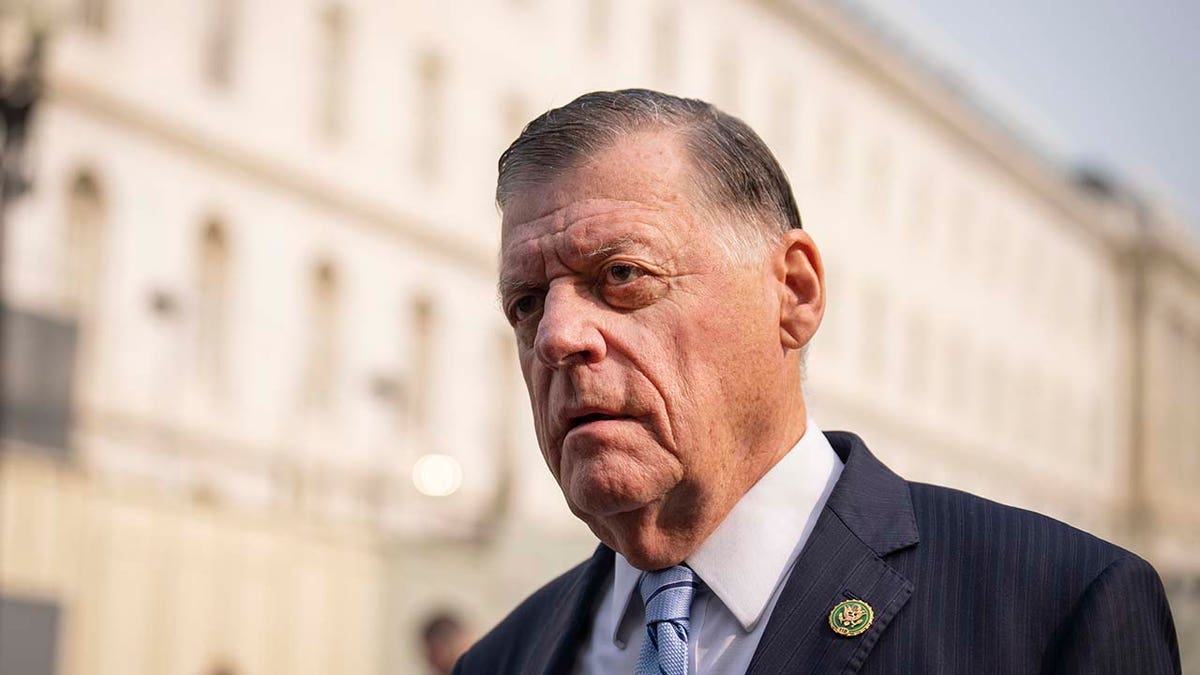
House Appropriations Committee Chairman Tom Cole said the Fiscal Responsibility Act is “the law” when asked if it constrained him. (Drew Angerer/Getty Images)
When asked about whether he felt constrained by the FRA, House Appropriations Committee Chairman Tom Cole, R-Okla., told Fox News Digital, “I mean, that’s the law, so we’re going to mark it up to what the law tells us to mark up to.”
Rep. Jake Ellzey, R-Texas, a member of the Appropriations Committee, similarly said, “We’re doing the best we can, it’s the law of the land. So you do what you can with what you’ve got — if frogs had wings, they’d be a lot more successful on not hitting their rear end when they jump.”
He also suggested that there would be certain hurdles brought by the FRA. “Based on the FRA, most of those bills are going to take a shave except for Defense and Homeland. And of course, even with the increase for those two, it’s a net decrease because of inflation, so real dollars are still getting cut no matter which spending bill you’re talking about,” Ellzey said.
“Chairman Cole has already made some good, hard, strategic decisions…so we’ve got some clear pictures of where we’re going, and we’re going to be far more aggressive on getting those bills done on time this year.”
Indeed, House GOP leaders are eyeing an ambitious schedule to get all 12 individual spending bills that fund the U.S. government passed well before the Sept. 30 deadline at the end of the fiscal year.
SENATE PASSES MAMMOTH $1.2T SPENDING PACKAGE AFTER BRIEF PARTIAL GOVERNMENT SHUTDOWN
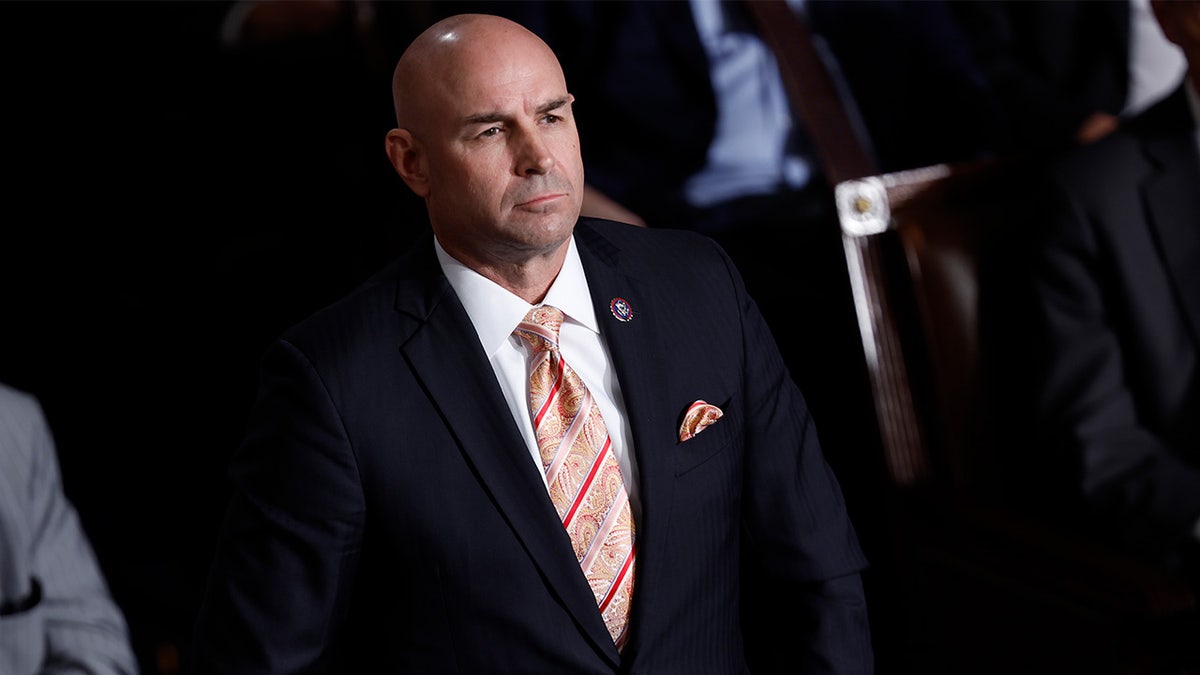
Rep. Jake Ellzey conceded that appropriators were constrained somewhat but expressed confidence in Rep. Tom Cole’s leadership. (Getty Images)
Majority Leader Steve Scalise, R-La., outlined a legislative calendar that would have them passed before Congress embarks on a monthlong August recess during a closed-door House GOP conference meeting earlier this week, a source familiar with his comments told Fox News Digital.
CLICK HERE TO GET THE FOX NEWS APP
Last year’s government funding fight was marked by chaos and disagreements within the House GOP as members on the right of the conference pushed leaders to leverage a government shutdown in exchange for deeper spending cuts, while other Republicans sounded the alarm on the economic and political ramifications a shutdown would have.
The fight over funding the government in fiscal year 2024 was among the factors that led to McCarthy’s historic ouster last October.
Fox News Digital reached out to a representative for the former speaker for comment.






